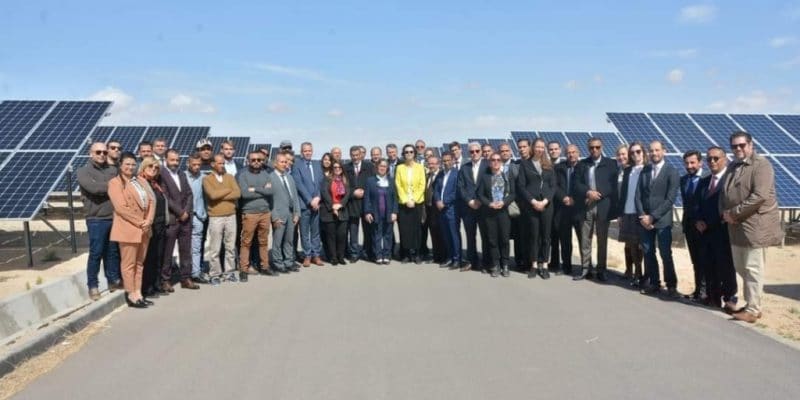The solar power plant of Tozeur II was recently inaugurated in the south-west of Tunisia. The ceremony took place in the presence of officials of the German Development Agency (KfW), the financial partner of the project.
A new solar power plant enters into service in Tunisia. The solar park of Tozeur II was recently inaugurated in the presence of Tunisian authorities, as well as officials of the Tunisian Company of Electricity and Gas (Steg) and the Kreditanstalt für Wiederaufbau (KfW). The German development agency is the financial partner of the project with a loan of 11.5 million euros.
Of this funding, only 8 million euros were finally used for the construction of the plant. The rest of the money should, according to KfW, support the establishment of a battery storage system to optimize the production of the solar power plant of Tozeur II. The facility, which has a capacity of 10 MWp, was built by the Steg following the Tozeur I which has the same capacity.
A project of the Tunisian Solar Plan
“The Tozeur I and Tozeur II plants were the first large-scale photovoltaic plants in Tunisia to come on stream and supply the Tunisian electricity grid with green electricity. We are proud to have accompanied our partners, the Ministry of Energy and Steg, in the realization of this important step of the energy transition in Tunisia,” says Thorsten Schneider, KfW’s Director for Energy in North Africa.
Read also- TUNISIA: In Kairouan, Amea Power will build a 100 MW solar power plant in PPP
The two solar power plants were built under the Tunisian Solar Plan (PST). Implemented by successive governments in Tunisia since 2012, this program aims at the large-scale development of renewable energy. The PST is also consistent with Tunisia’s climate commitments. At the 2021 Glasgow Conference on Climate Change (COP26), Tunisia committed to reducing its greenhouse gas emissions by 46% by 2030, compared to 2010.
In line with this commitment contained in its nationally determined contributions (NDCs) updated in 2021, the North African country wants, through the TSP, to produce 1,860 MW of clean energy by 2023 and 3,815 MW by 2030. Currently, Tunisia depends on gas for 97% of its electricity production, according to the National Agency for Energy Management (ANME). Tunis also relies on independent power producers (IPP) to achieve its Tunisian Solar Plan.
Jean Marie Takouleu







